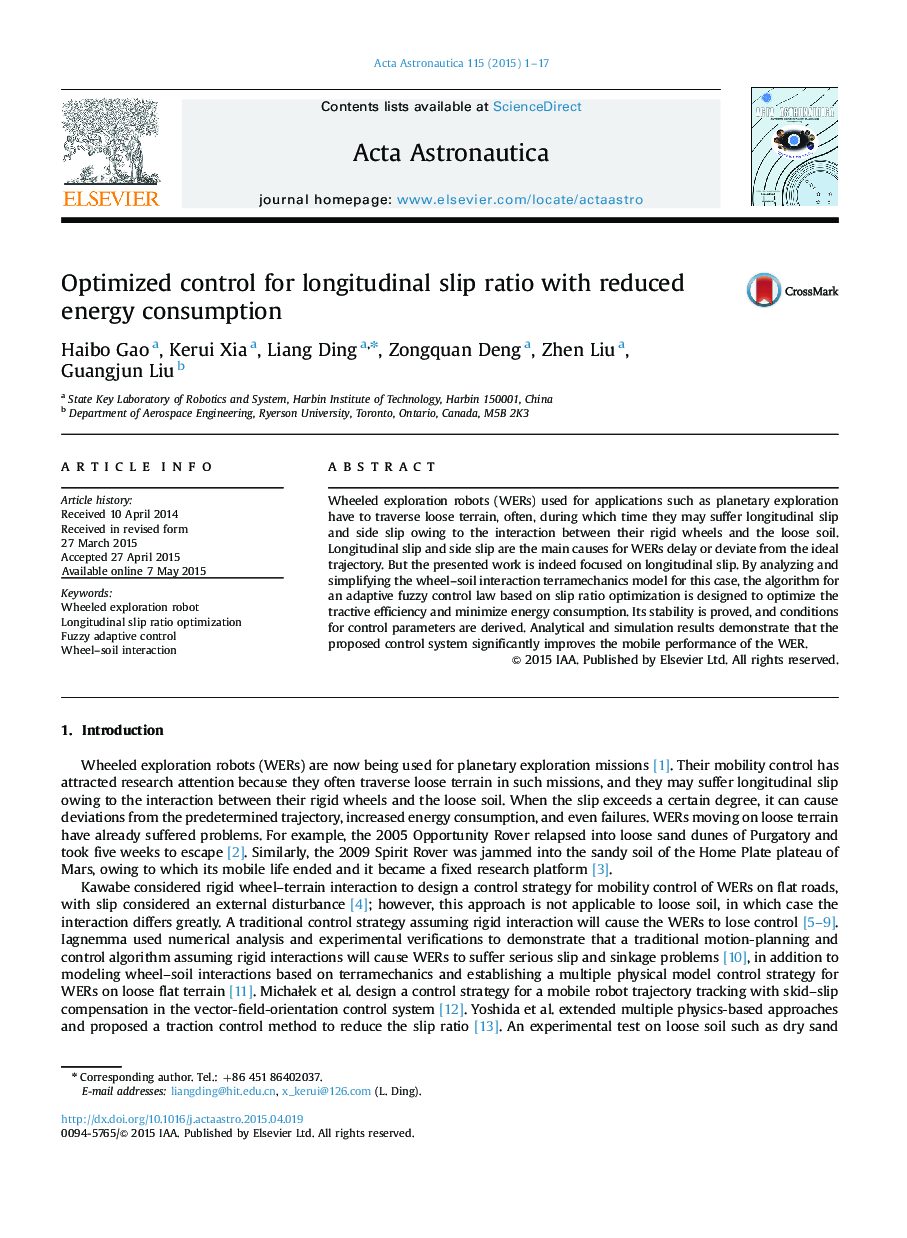| Article ID | Journal | Published Year | Pages | File Type |
|---|---|---|---|---|
| 8056390 | Acta Astronautica | 2015 | 17 Pages |
Abstract
Wheeled exploration robots (WERs) used for applications such as planetary exploration have to traverse loose terrain, often, during which time they may suffer longitudinal slip and side slip owing to the interaction between their rigid wheels and the loose soil. Longitudinal slip and side slip are the main causes for WERs delay or deviate from the ideal trajectory. But the presented work is indeed focused on longitudinal slip. By analyzing and simplifying the wheel-soil interaction terramechanics model for this case, the algorithm for an adaptive fuzzy control law based on slip ratio optimization is designed to optimize the tractive efficiency and minimize energy consumption. Its stability is proved, and conditions for control parameters are derived. Analytical and simulation results demonstrate that the proposed control system significantly improves the mobile performance of the WER.
Keywords
Related Topics
Physical Sciences and Engineering
Engineering
Aerospace Engineering
Authors
Haibo Gao, Kerui Xia, Liang Ding, Zongquan Deng, Zhen Liu, Guangjun Liu,
